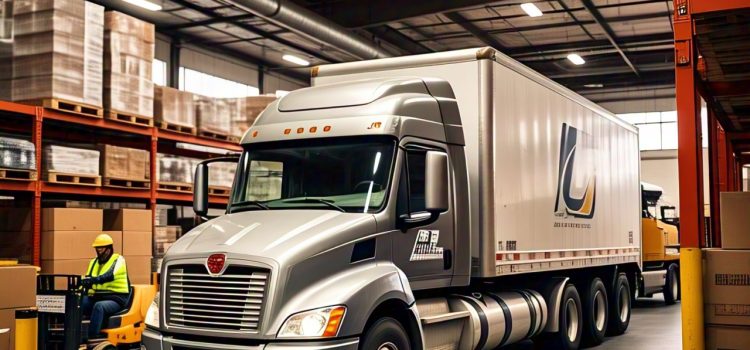
In the ever-demanding world of freight logistics, a reliable truck dispatching service is more than just a middleman—it’s a critical partner that keeps your wheels turning and your business profitable. Whether you’re an owner-operator running solo or managing a small fleet, having a trusted dispatcher can be the difference between sitting idle or securing profitable loads day in and day out.
What is a Truck Dispatching Service?
At its core, a truck dispatching service helps carriers manage freight by:
- Finding loads that match their equipment and route preferences
- Handling broker negotiations and rate confirmations
- Managing paperwork, invoicing, and compliance
- Offering real-time communication between drivers, shippers, and receivers
It’s like having your own back-office team working behind the scenes so you can focus on the road ahead.
Who Benefits the Most from Dispatching Services?
From my experience in the logistics and packaging sector, I’ve seen owner-operators, small fleets, and new authorities benefit most from third-party truck dispatchers. Here’s why:
- New carriers may struggle with route planning, load boards, and rate negotiation
- Small fleets can’t always afford full-time office staff to manage logistics
- Solo drivers can’t afford to waste time chasing down freight while driving
Key Features to Look For
When evaluating a truck dispatching service, make sure it offers:
- 24/7 Load Monitoring & Communication
- Dedicated Dispatchers for Personalized Support
- Back-Office Assistance (Invoices, BOLs, Factoring)
- Route Optimization & Fuel Planning
- FMCSA & DOT Compliance Support
It’s About More Than Just Finding Loads
A good dispatcher doesn’t just grab the first load that pops up—they understand your equipment type (reefer, flatbed, dry van, box truck, hot shot) and aim to maximize your rate-per-mile (RPM) and minimize deadhead miles.
They also understand the seasonality of freight and regional trends—so they can strategically position your truck in high-demand areas.
Common Equipment Types Handled
- Dry Van
- Flatbed & Step Deck
- Reefer (Refrigerated Trucks)
- Power-Only
- Hotshot & Box Trucks
- Car Haulers
Cost vs. Value
Most dispatching services charge a flat fee or a percentage—usually between 5% to 10% of the load rate. But here’s the thing: a good dispatcher more than pays for themselves by finding better-paying loads, reducing downtime, and keeping you legal and organized.
As someone who works closely with packaging and shipping operations, I can’t emphasize enough how important it is for freight carriers to operate efficiently. Delays or miscommunication upstream can ripple down the supply chain—and that’s costly for everyone involved.
Who Can Benefit Most?
- Owner-Operators: Solo drivers gain an office team without hiring staff. They spend more time on the road and less chasing loads.
- Small Fleets: Fleets with 2–10 trucks get full dispatch support at a fraction of the cost of an in-house team.
- New Carriers: New authorities need guidance on load boards, rate negotiation, and paperwork. Dispatchers smooth out the learning curve.
- Specialized Haulers: Flatbeds, refrigerated trucks, and power-only rigs face niche markets. Expert dispatchers connect them to the right brokers.
If your operation fits any of these profiles, a truck dispatching service can be a game-changer.
Cost vs. Value: Is It Worth It?
Most services charge 5%–10% of gross load revenue. On a $2,000 load, that’s $100–$200. At first glance, it may seem steep. However, consider the value:
- Higher Revenue: Dispatchers negotiate better rates and fill more loads.
- Lower Costs: Optimized routes and fuel-planning cut diesel expenses.
- Time Savings: Drivers focus on driving rather than admin, improving work–life balance.
- Risk Reduction: Expert compliance support avoids thousands in fines.
For many carriers, the net gain far exceeds the fee. When trucks move more miles at better rates, dispatch services pay for themselves—and then some.
Choosing the Right Truck Dispatching Service
- Check References and Reviews
Ask peers for recommendations. Online forums and industry groups can point you to reputable services. - Assess Technology
Ensure the dispatcher uses modern tools like load-board subscriptions, GPS tracking, and route optimization. - Test Responsiveness
Call after hours or on weekends. A quick, helpful response indicates strong support. - Review Contract Terms
Look for month-to-month options or clear exit clauses. Avoid long-term lock-ins until you see consistent results. - Discuss Communication Protocols
Agree on preferred methods (phone, text, email) and regular check-in times to keep everyone on the same page.
A careful vetting process leads to a long, productive partnership that keeps your freight moving.
Real-World Example: The Day a Dispatcher Made the Difference
Tom runs a three-truck fleet hauling refrigerated produce. One summer afternoon, a dispatcher secures a high-paying load from Florida to Georgia. On the way, an accident closes the interstate. Instead of panicking, Tom’s dispatcher reroutes the truck onto secondary roads, finds a nearby refrigerated facility to park safely, and informs the receiver of a two-hour delay. Tom avoids spoilage, the customer stays happy, and the load still nets a strong profit. Without a dispatcher, Tom might have lost time, spoilage could have occurred, and relationships may have suffered.
Tips for Maximizing Dispatch Service Value
- Share Detailed Preferences: Tell your dispatcher about preferred routes, rest stops, and target lanes.
- Keep Open Communication: Reply quickly to rate confirmations and paperwork requests.
- Review Weekly Reports: Analyze metrics like loaded miles, deadhead miles, and average rate per mile.
- Provide Feedback: If a load doesn’t meet expectations, discuss improvements with your dispatcher.
- Plan Ahead: Let your dispatcher know about upcoming maintenance or downtime to avoid gaps.
By collaborating closely, you and your dispatcher become an unstoppable team for efficient freight movement.
Final Thoughts
Running a trucking operation is hard enough without the paperwork, negotiations, and phone calls. That’s where a truck dispatching service comes in—your silent partner that keeps the freight moving and your profit margins in check.
If you’re tired of chasing loads or missing out on better-paying lanes, maybe it’s time to bring a dispatcher into your operation.









